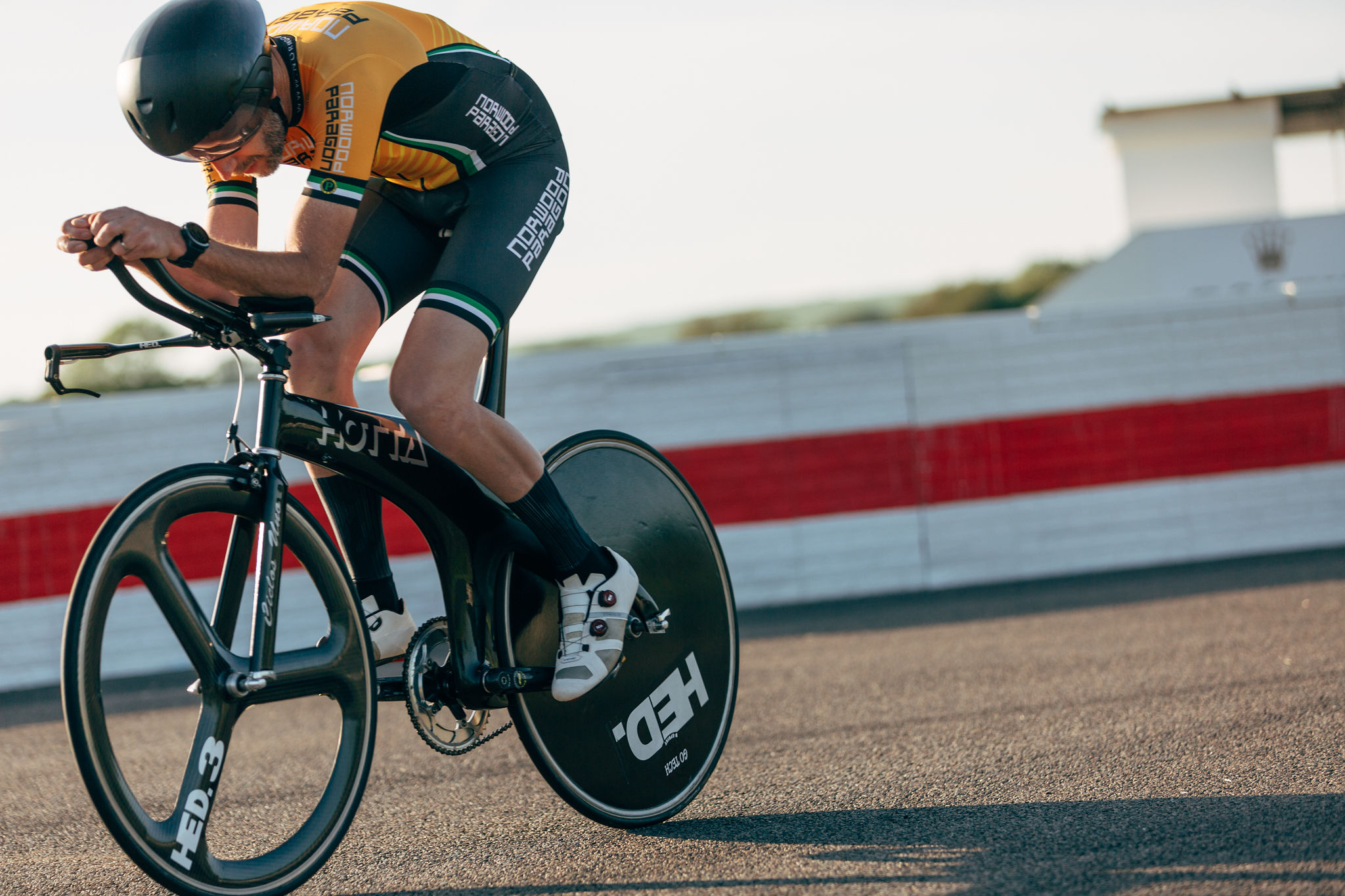Hottest five aero bikes for 2023... plus three all-rounders that can hold their own
Trek, Giant, Scott and more dig deep in the search to go faster
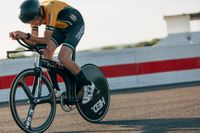
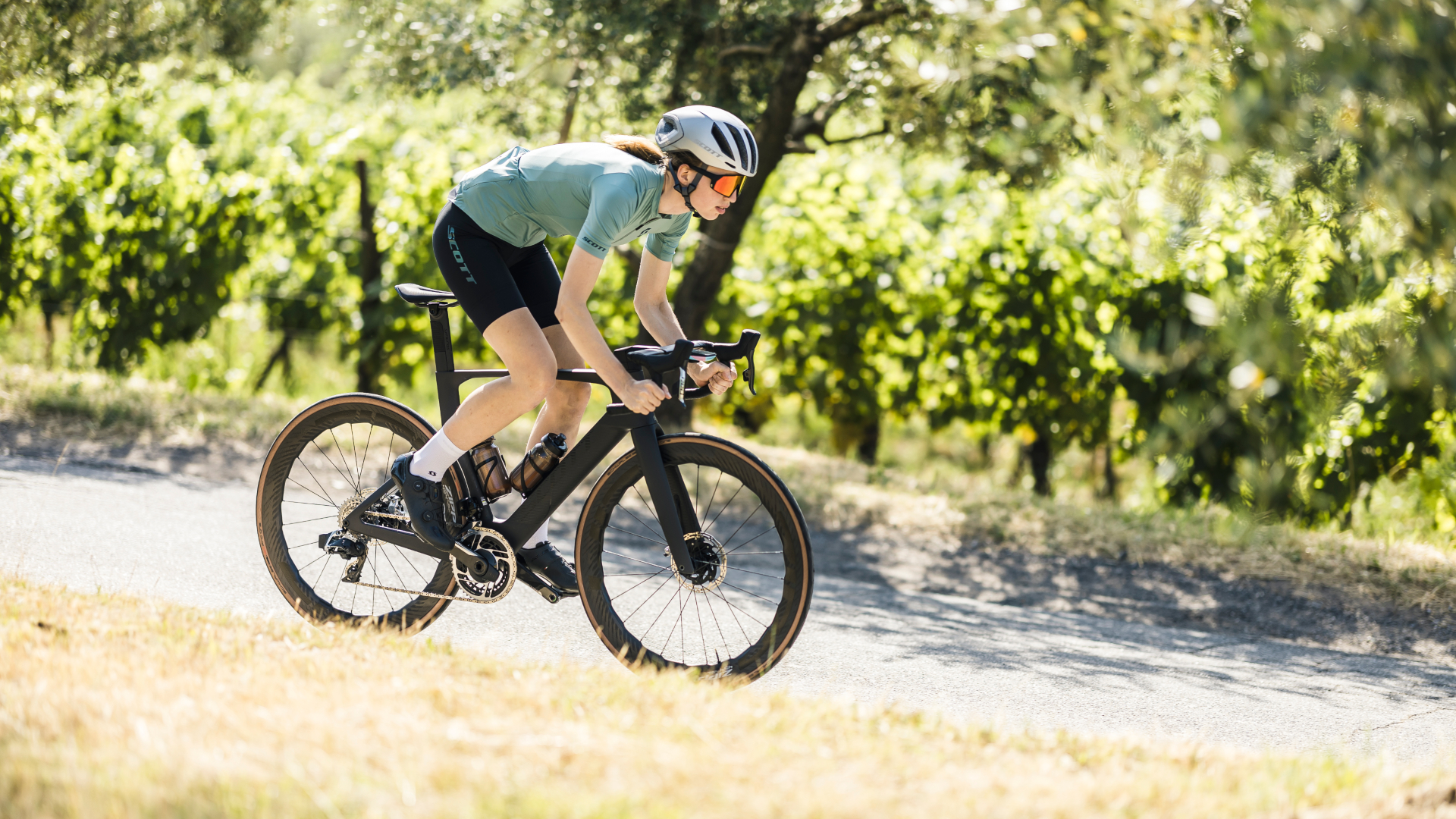
The latest race content, interviews, features, reviews and expert buying guides, direct to your inbox!
You are now subscribed
Your newsletter sign-up was successful
Aero bikes are all about raw speed, and they just keep getting faster.
We’re going to have a look at the bikes that we think are going to be the ones to beat in 2023, both in the WorldTour and in the sprint for the town sign, and there are plenty to choose from.
With the UCI removing the 3:1 regulation, which prevented tubes from being more than three times deeper than their width, engineers have quite literally gone deeper in the pursuit of speed. The result has been some exciting new bikes.
Why should the UCI regulations make a difference to what I ride in my chaingang, you might be asking, but the fact is generally the top aero bikes are developed initially for pro racing - with the notable exception of the Bianchi Oltre RC, which we couldn’t miss out of our list.
Trek Madone
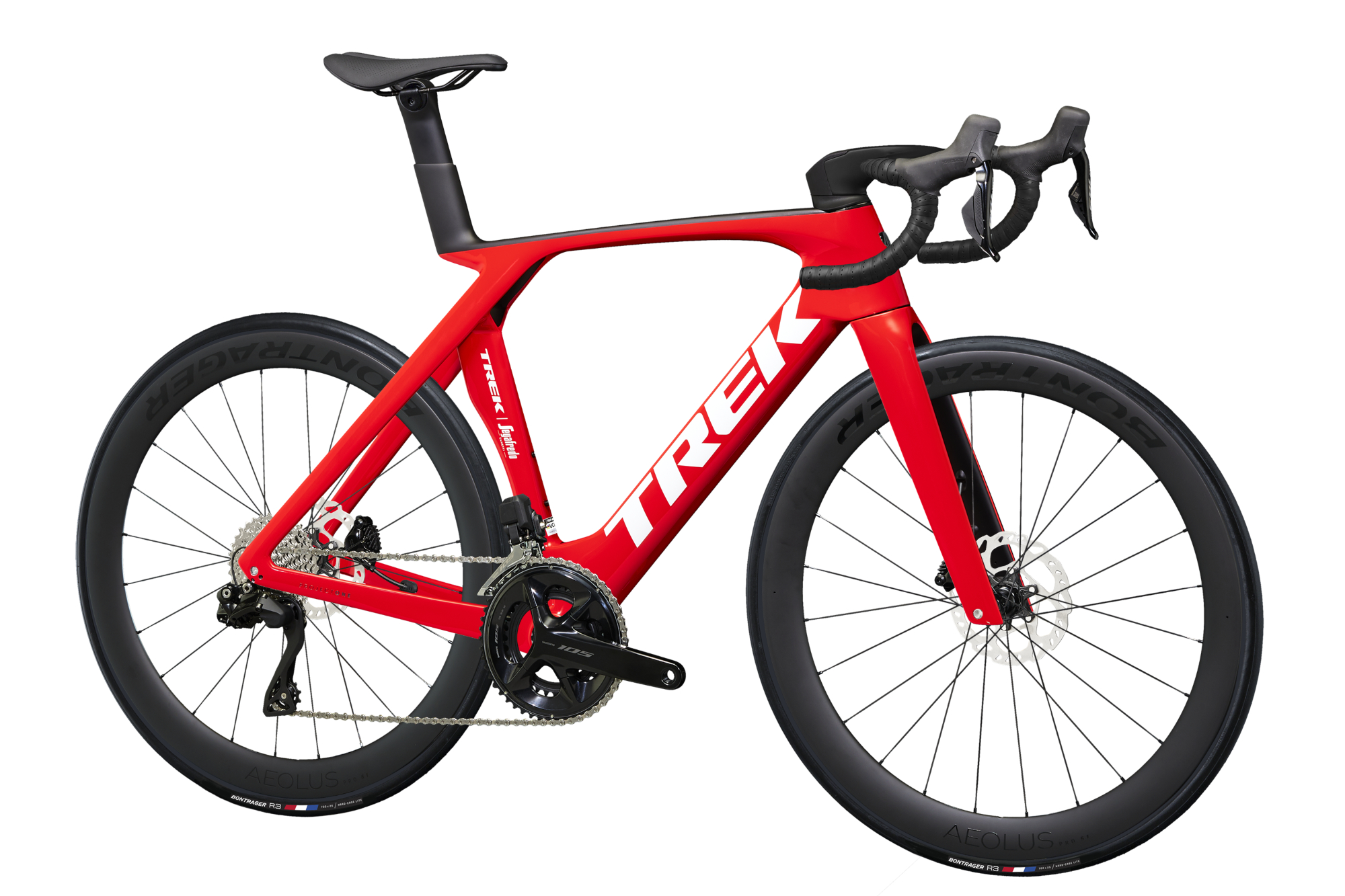
First up is a radical bike that stirred up plenty of debate on its release but one that's still UCI legal. The all-new Trek Madone.
In the case of the Madone, the newly formulated Kammtail tube shapes were overshadowed by the bike’s crazy-looking Isoflow technology.
Gone is the IsoSpeed decoupler of the previous bike that had been introduced to help make the bike more comfortable. In its place is… a hole.
The latest race content, interviews, features, reviews and expert buying guides, direct to your inbox!
By removing the adjustable Isospeed system of the last Madone, the bike became both simpler and lighter. Combined with the use of 800 series OCLV carbon, the new frame weighs a claimed 300 grams less than the previous model.
But of course the cut-out section was also created with aerodynamics in mind. Trek say it’s “a way to direct some high energy flow into a low energy region of the bike.” What that means is that the seat tube area creates a disproportionate amount of drag and the hole helps to dissipate this by adding what Trek call a “jet of fast moving air.”
The new frame is claimed to be almost 20 watts faster than the last generation, which equates to 60 seconds per hour when ridden at 45kph - and that’s a lot.
The ‘entry level’ model with Shimano 105 Di2 and Bontrager Aeolus Pro 51 wheels costs £6,850.00/US$7,999.99 and it goes up to £13,800/US$13,199.99 for the Madone SLR 9 with SRAM Red eTap AXS and Bontrager Aeolus RSL 51 wheels.
Giant Propel
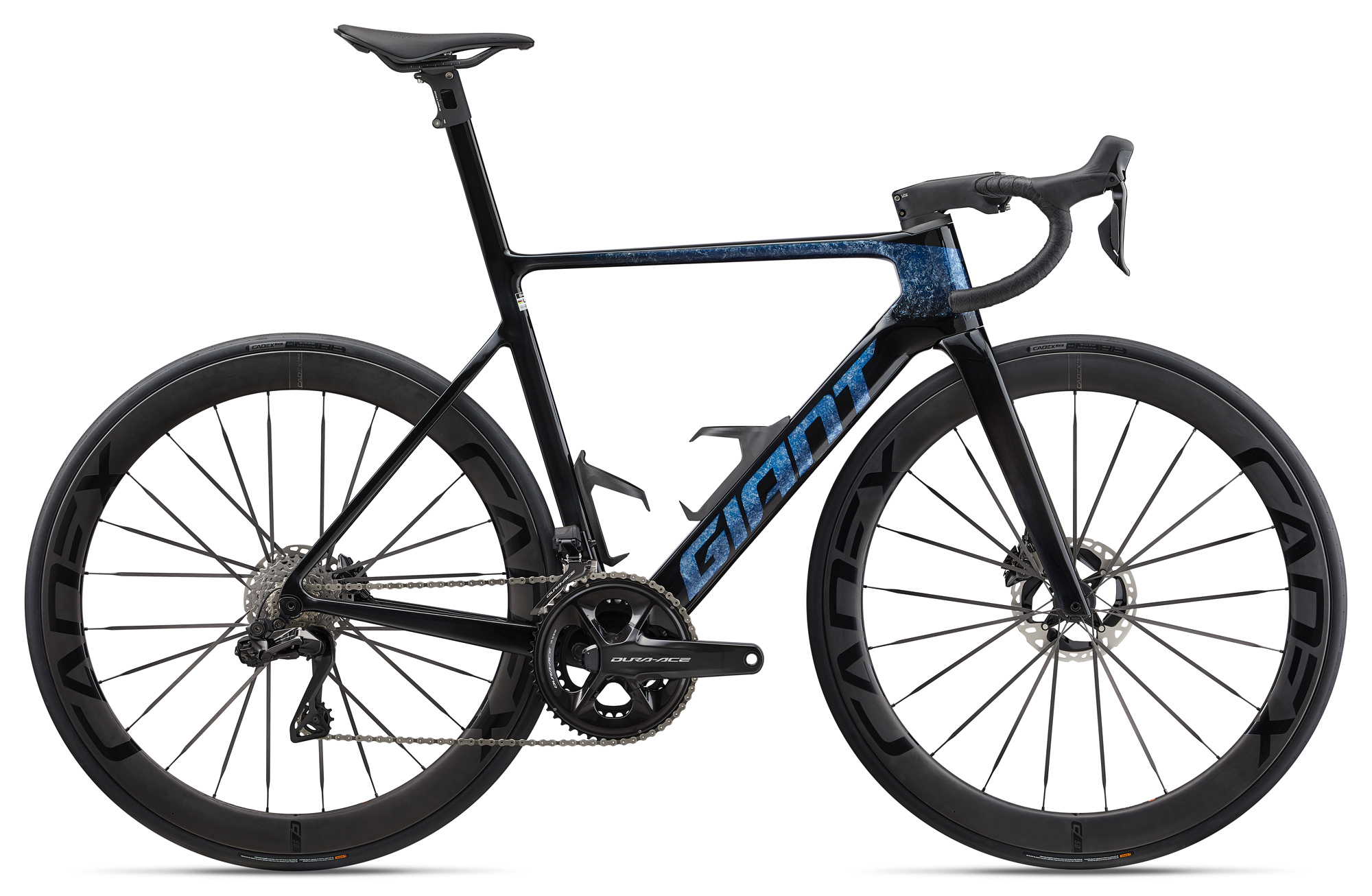
Like the new Trek Madone, the new Giant Propel Advanced SL is both lighter and faster than before.
Its weight was reduced through a ‘fusion process’, which sees the top tube ‘grafted’ to the seat tube using filament to hand weave the tubes together before re-moulding them under high pressure and heat to strengthen the junction.
Giant says the new Propel is 225 grams lighter than its predecessor, with the new Advanced SL frame weighing 845 grams with the complete frameset claimed to be almost 14% lighter than the outgoing model.
To make the Propel faster, Giant used a combination of airflow simulation software, wind tunnel testing (including using a ‘dynamic’ mannequin) and real-world application.
The resulting ‘AeroSystem Shaping’ led to what Giant describes as truncated ellipse airfoil shapes across the down tube, seat tube and seatstays as well as a redesigned frontal area, an area crucial to the reduction of drag.
There’s even two different bottle cages designed to improve the aerodynamic performance of both the down tube and the seat tube.
The result is a bike that Giant say is 27 seconds faster over 40km at 40kph thanks to a reduction in drag by more than six watts.
Cervélo S5
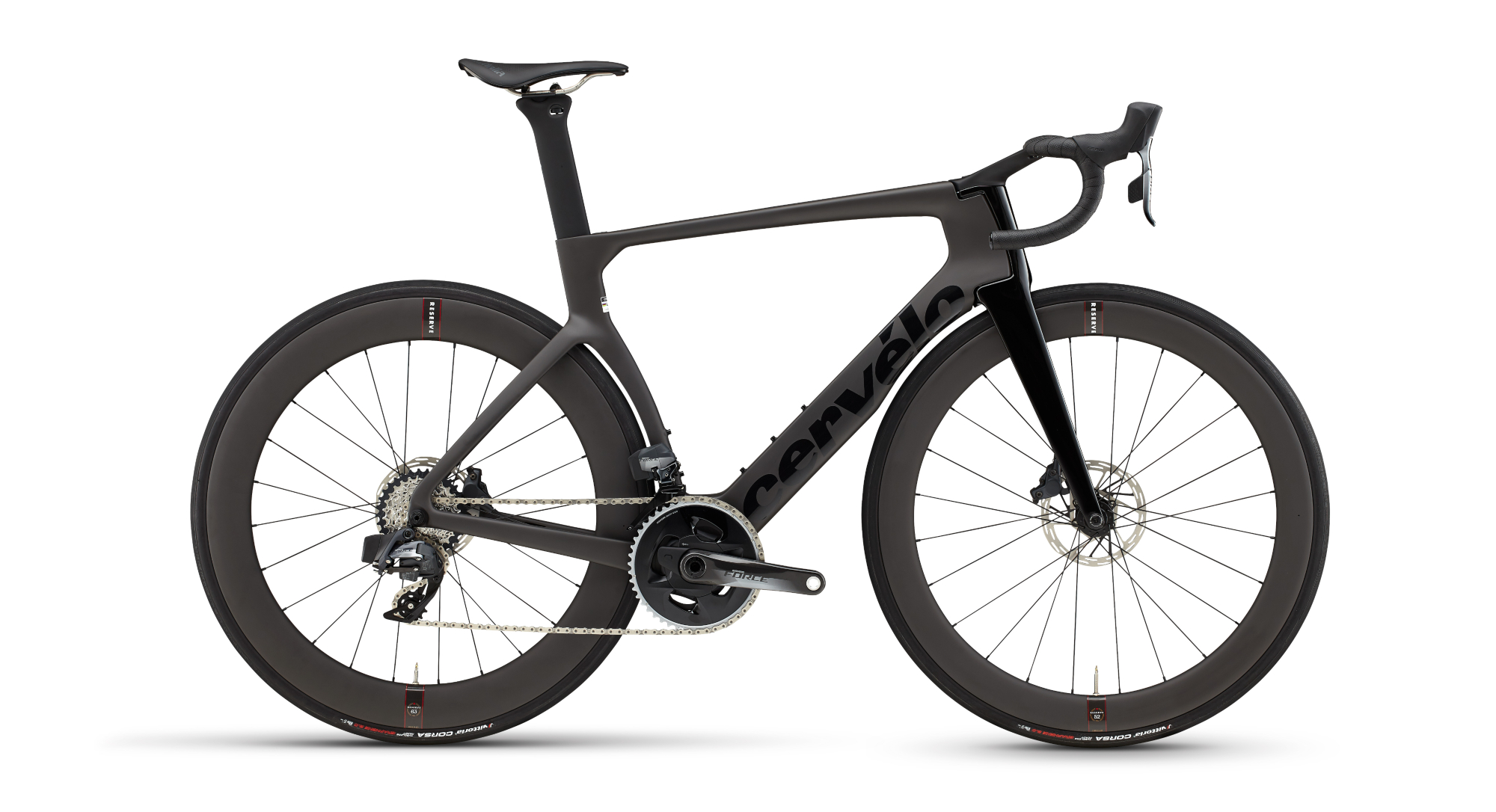
This is the bike that the all-conquering Jumbo Visma team were riding all through 2022 and a long time before the official launch.
As with all the new aero bikes we’ve seen, the frame’s aero profiles have been deepened, a product of the relaxing of the UCI regulations. This is most noticeable at the head tube and bottom bracket area.
Elsewhere the trailing edges of the tubes are more aggressively shaped, while the rear dropouts have been simplified a little due to the frame being compatible with electronic groupsets only - another trend we’re seeing.
It comes with new Reserve wheels that have differential rim profiles and save over five watts compared with the previous wheels.
The front end has been overhauled with a new handlebar that despite the radical Y shape without a conventional stem, also has the benefit of reducing the system weight by a little over 50g. Cervélo says the bike’s overall weight is lower than the previous model's.
Naturally, as a pro-level bike the S5 doesn’t come cheap. The SRAM Red model retails at £12,999, while the Dura-Ace equivalent is £12,500. Both the Force and the Ultegra specced bikes are under £10,000; £9,599 and £9,1999 respectively. If you want to create your own dream build, the frameset retails at £5,499.
Scott Foil RC
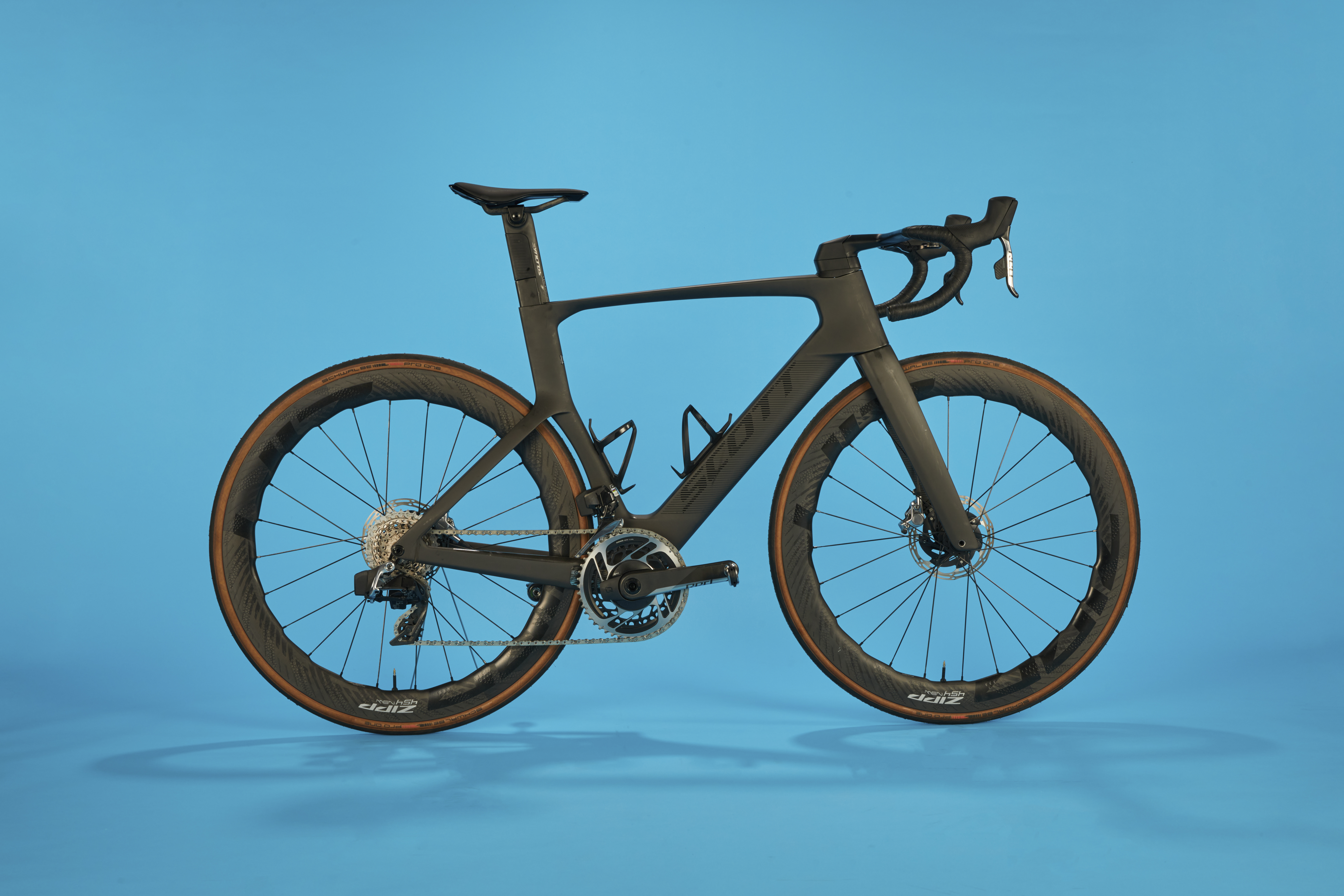
Let’s start with the numbers. Scott claims the new Foil is 20% faster, 10% more comfortable and 9% lighter than the outgoing version. Those are some big claims.
Like the other manufacturers, Scott took advantage of the UCI rule change and redeveloped the new Foil pushing right up to what’s legal.
That meant deeper cross sections for the tubes as well as the fork crown being a little higher up from the front wheel and the oversized head tube acting as a fairing according to Scott.
The bottom bracket area has also been beefed up, while the seat tube now follows the arc of the tyre much more closely - before the seatpost itself transitions to shoot straight upwards.
The seatstays are designed to shelter the brake calipers but they’ve also been angled at 10 degrees to force the laminar (steady) flow of air into the spinning spokes.
That doesn’t sound to us like something that would make it go faster, but Scott conducted whole-system testing and used an actual wind tunnel, rather than only using CFD (computational fluid dynamics) software.
Scott says this iteration is 1 minute and 18 seconds faster over 40km at 40kph than before.
Another neat little point is that the bikes are being sold with 28mm tyres specced on the rear and 25mm tyres on the front.
But it is eye-poppingly expensive: the flagship SRAM Red eTap AXS equipped Foil RC Ultimate build costs an incredible £15,899.
We had the chance to ride the top-end Foil Ultimate RC model in and around Lake Iseo in Italy at the time of the launch, and we have since been reunited with the bike in the UK - so, expect to see a full review soon.
Bianchi Oltre RC
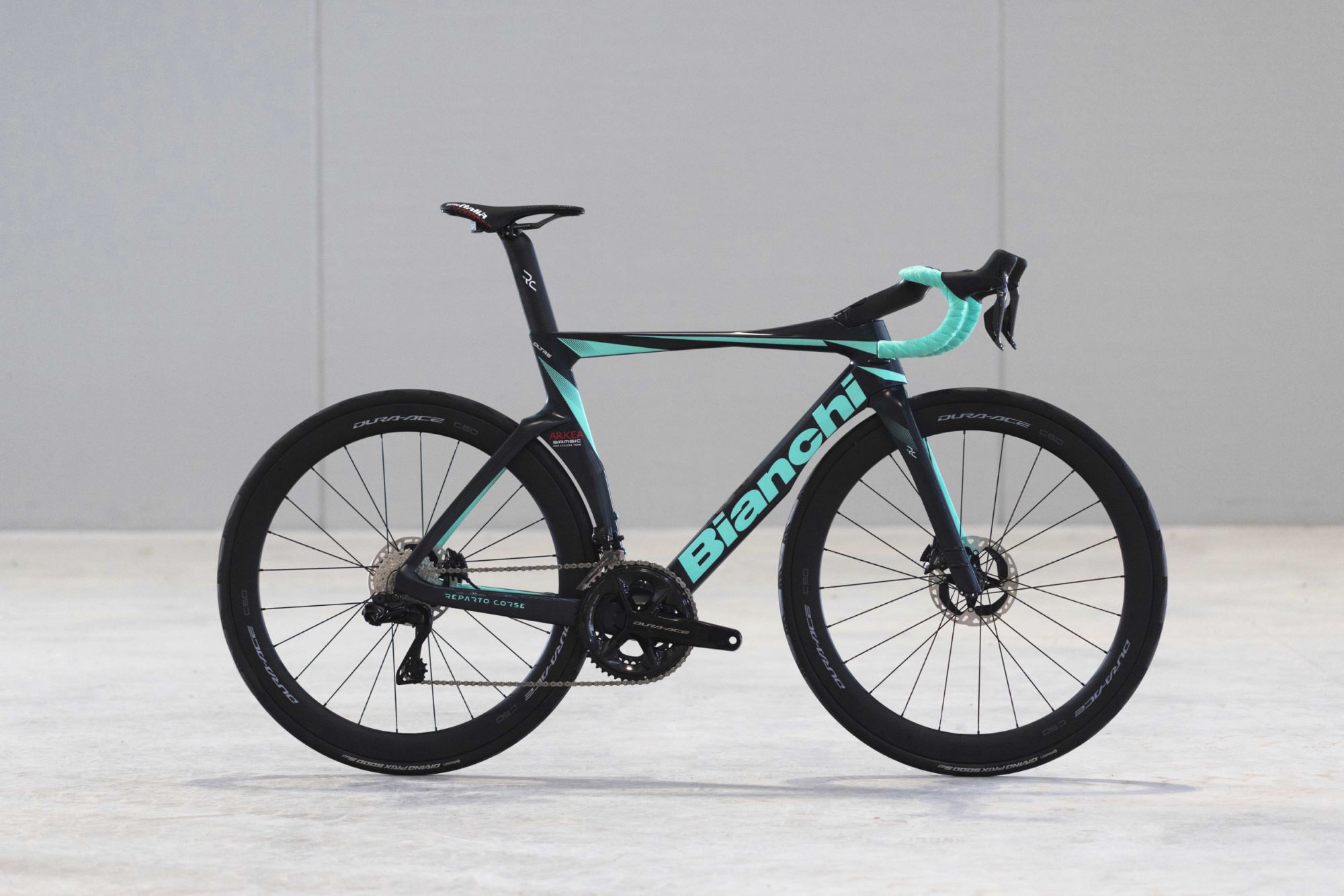
We’ve spent quite a lot of time talking about this bike recently and have possibly slightly unfairly poked fun at it.
Bianchi’s new bike - which it says is the first hyperbike - has Air Deflector technology. These are little air intakes either side of the head tube, which Bianchi explains are inspired not only by motor racing but also by aerospace and architecture. It is, Bianchi say, a world-exclusive, patent-pending technology.
Bianchi makes some huge claims for the bike: it saves 17.1 watts at 50kph but also has a 30% advantage over the best aero road bikes on the market in variable wind conditions. It's also claimed to weigh 6.85kg in a size 55, which, if accurate, is pretty impressive.
We don’t have our own wind tunnel to independently test it against those other bikes and we haven’t had one on our scales yet, but there’s no doubt this will be one of the most talked about bikes in 2023.
Bianchi will be the bike sponsor of Arkea Samsic in the WorldTour next year so we’ll see the Oltre RC in action in pro racing - but without the Air Deflectors, which are simply bolted to the head tube and very easily removed. So if they don’t win everything in sight that will be why.
Prices start at £12,099/$13,500 depending on groupset choice. Is this the most expensive entry-level bike we’ve ever seen?
The all-rounders
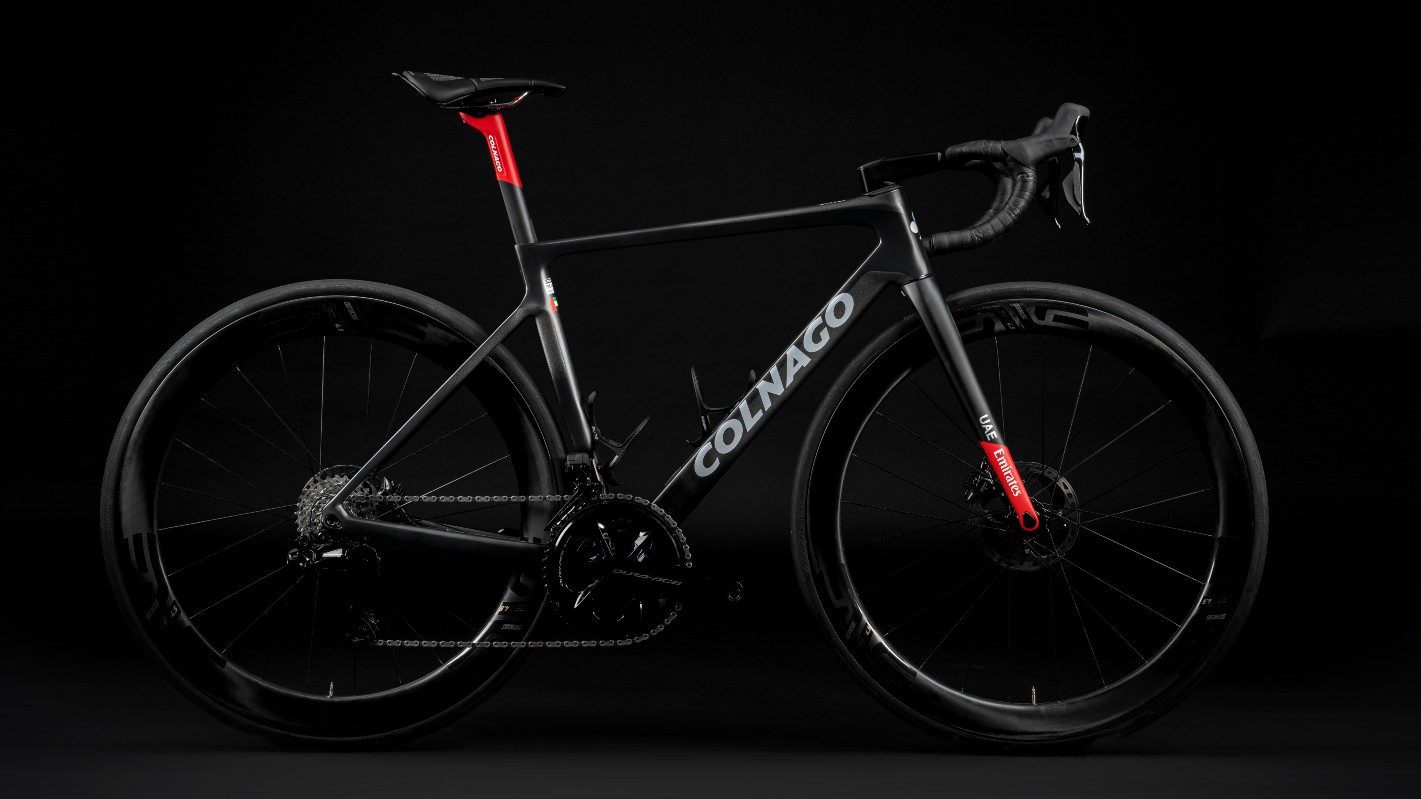
The Specialized Tarmac SL7, Pinarello Dogma F and Colnago V4RS aren't technically aero bikes, but rather all-rounders with the three brands deciding that separate aero and climbing bikes aren’t necessary. However, they do all have aero credentials.
The Tarmac SL7 was the result of the Venge, Specialized’s last true aero bike, merging with the Tarmac.
And ever since the original Pinarello Dogma F8 was launched in 2014, completely redesigned and aero-ised, the Italian brand also doesn’t see the need for a dedicated aero bike.
The newest of the trio is the Colnago V4Rs. You may have seen a bike looking pretty similar to this one as Colnago debuted the Prototipo at the Tour de France where five different versions of the bike were being used, each with a different carbon layup while they continued to develop the bike.
Now, launched just in time for the start of the new year, we have the V4Rs which is claimed to be more slippery in the wind - Colnago is saying nearly 20 watts faster than the outgoing V3Rs, lighter, but only by 57 grams and stiffer for the frameset (not the frame itself, which is slightly heavier. The V3Rs created some rather large boots to fill, but, since the Prototipo was piloted to 23 victories and 28 podiums in the space of four months, we’re confident Colnago was able to maintain the winning recipe - we even got to ride one with the UAE Team during their winter training camp this December.
In fact, we expect to see all three bikes winning plenty on the WorldTour in 2023 as they go to toe-to-toe with the dedicated aero bikes of the pro peloton.
Simon Smythe is a hugely experienced cycling tech writer, who has been writing for Cycling Weekly since 2003. Until recently he was our senior tech writer. In his cycling career Simon has mostly focused on time trialling with a national medal, a few open wins and his club's 30-mile record in his palmares. These days he spends most of his time testing road bikes, or on a tandem doing the school run with his younger son.
